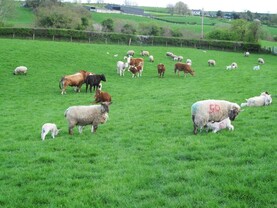"The voice of farmers is diminishing in terms of its influence on the ballot box and its influence on who governs," said Billy Kelleher.
The Cork politician was speaking at Macra na Feirme’s national agriculture conference, themed Disruption in Agriculture - Thinking Smart.
"The urbanisation of a population means farming drops down the scale of importance. Farming’s voice has already significantly diminished and that diminishes the capacity of rural voices at policy level," he said.
The thinking around the EU in its early form was peace and prosperity. Chief among this was making sure there was enough food production
Now in his early 50s, Kelleher said he was part of the generation that saw a shift in farming from just production to where we are now in terms of biodiversity and the environment.
"When I was a young man, it was knocking ditches and driving production. This was the result of policymakers of the time having lived through the food shortages experienced during and after the second world war.
"The thinking around the EU in its early form was peace and prosperity. Chief among this was making sure there was enough food production. The policy had evolved with time.
"We’ve moved a long way from that. There’s been quite a transformation around the CAP. There are now people who see it as a threat to the environment."
In future, he said: "every policy will first and foremost be environmentally proofed from now on. There’s going to be a huge shift. We have to change how we live and how we farm."
Dutch
A group of young Dutch farmers on a trip to Ireland attended the event and have experienced the results of the diminishing political clout of farmers. Some spoke to the Irish farmers Journal and said they were frustrated by the continual changing of rules regarding the environment and animal welfare.
Pig farmer Henry Van Der Walt rears 630 sows in the Utrecht area. He said : "Every five years the rules are changed and that’s why the Dutch farmers are angry. The problem is the cost. After you make changes on your farm, the rules change and if we don’t change we could lose our markets."






 This is a subscriber-only article
This is a subscriber-only article








SHARING OPTIONS: